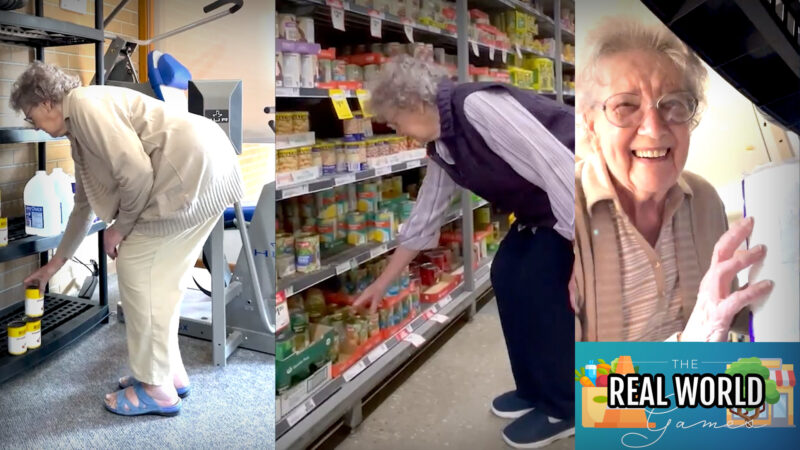Geriatrician Professor Susan Kurrle is Curran Professor in Health Care of Older People at the Faculty of Medicine and Health, University of Sydney.
Professor Kurrle is a practicing geriatrician for the Northern Sydney Local Health District (NSLHD), specialising in the areas of dementia, frailty, elder abuse, successful ageing, and intergenerational care.
In this Re Aged Care segment, Professor Kurrle talks about the 5 key priorities in aged care reform, from the point of few of a geriatrician, especially those that are living with dementia.
In no particular order of importance, here are the 5 Key priorities in Aged Care reform, according to a Geriatrician:
1. Care settings
The group home model of care for people with dementia involves providing a small, home-like environment for individuals with dementia to live in. This model of care typically involves a residential facility that houses a small number of residents who have dementia or other memory-related conditions.
The goal of a group home is to provide a safe and secure environment where individuals with dementia can receive the care and support they need while still maintaining a sense of independence and dignity. The staff at a group home typically receive specialised training in caring for individuals with dementia, and they work to create a supportive and engaging environment that promotes residents’ social, emotional, and physical well-being.
2. Intergenerational Practice
Intergenerational practice is a model of care that brings together children and older Australians, to participate in activities and programs such as storytelling, music, arts and crafts, games, or physical exercise together in a shared setting. The goal of intergenerational care is to foster connections and relationships between different age groups while providing mutual benefits for all involved. For the elderly, intergenerational care can provide opportunities for socialisation and companionship, which can help combat loneliness and isolation.
3. Successful Ageing
Successful aging is a multidimensional concept that refers to the ability of individuals to maintain physical and cognitive functioning, social engagement, and overall well-being as they age. Successful aging is not just about living a long life, but also about living a fulfilling life.
Some of the key components of successful ageing include physical health, cognitive function, social engagement, emotional well-being and purpose.
4. Combatting Ageism
Ageism is a form of discrimination and prejudice based on a person’s age, particularly towards older adults. Ageism can take many forms, such as stereotyping, prejudice, and discrimination, and can be subtle or overt. Some common examples of ageism include assuming that older adults are not capable of certain tasks, assuming that they are less competent or less productive than younger individuals, or making negative comments or jokes about older adults. Ageism can also manifest in policies and practices that disadvantage older adults, such as age limits for employment or access to healthcare.
Ageism can have negative consequences for older adults, including reduced access to opportunities and resources, social isolation, and negative impacts on physical and mental health. It is important to recognise and challenge ageism in all its forms, and to promote respect and dignity, especially towards the elderly.
5. Dental and Oral Health
Oral and dental health is important for everyone, but it is particularly important for the elderly population. As people age, they may face a range of dental and oral health issues that can have significant impacts on their overall health and well-being. Some reasons why oral and dental health is important for the elderly includes, maintaining good nutrition, preventing systemic health problems, preventing tooth loss, preventing oral cancer and even maintaining social connections.
You Might also like
-
Report from inaugural ARIIA Conference
In May 2023, Aged Care Research & Industry Innovation Australia held its inaugural conference at the Adelaide Oval. Titled, “Facing the Future: Aged Care 2030 and Beyond”, the conference featured the best and sharpest minds from several sectors across the aged care ecosystem for two days of inspiring debate and conversation.
Re Aged Care spoke with ARIIA Interim CEO, Reuben Jacob about the conference, the speakers, content and projects funded
-
Government’s first report card, 1 year on
Re Aged Care spoke with Paul Sadler, CEO of Aged & Community Services Australia (ACSA) about this week’s Federal Budget and the recent announcement on on-site pharmacists to improve medication management in Residential Aged Care Facilities (RACFs).
-
Applying creativity in wellness and reablement in residential aged care
Real World Games are a series of events that mimic typical obstacles older adults may face in the community. Each event incorporates a different environment, skill and challenge. Over 4 weeks, each competitor will receive the support and training of their allied health team to conquer challenges. These challenges have been designed for varying mobility and functional levels, as well as some challenges for the trainers, for all involved to compete.
The games will culminate in a live-streamed event where competitors from across Australia will compete against each residential aged care centre.
The aim is to make as many older adults as possible, community ambulant, whilst using creativity to give older Australians a sense of fun in the activity.



